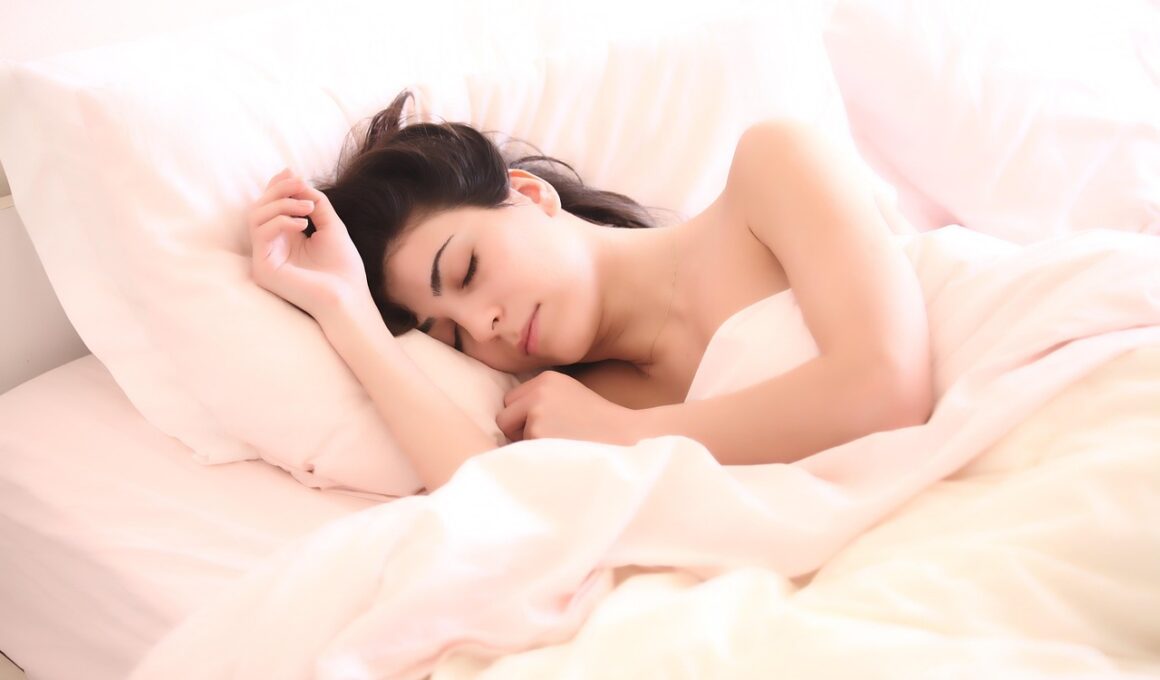The Impact of Screen Time on Melatonin Production and Athletic Sleep
Melatonin is a hormone crucial for regulating sleep-wake cycles. It is primarily produced in the pineal gland at nighttime, signaling to the body that it is time to sleep. Recent studies suggest that excessive screen time, particularly from smartphones and tablets, may adversely affect melatonin production, impacting sleep quality and recovery, especially for athletes. Prolonged exposure to blue light emitted by screens can suppress melatonin levels, delaying the onset of sleep. This suppression can disrupt the circadian rhythm, making it challenging to fall asleep at the desired time. For athletes, optimal sleep is vital for recovery and performance. The greater the decline in melatonin levels, the more detrimental the effect on sleep becomes. Consequently, athletes must be aware of the timing of their screen usage, especially before bed. To mitigate these effects, they can consider using blue light filters on devices, reducing screen time at night, or investing in blue light-blocking glasses. Creating a dark sleep environment can also enhance melatonin production, ensuring athletes get the restorative rest they require. Therefore, managing screen time might be key to improving athletic performance through better sleep.
Research highlights the importance of melatonin not only as a sleep hormone but also as a powerful antioxidant. It plays a crucial role in protecting against oxidative stress and inflammation, particularly important for athletes who undergo rigorous training. In addition to diet and exercise, understanding melatonin’s role can be beneficial. The reduced melatonin levels due to increased screen exposure can lead to poorer recovery outcomes, muscle fatigue, and longer healing time from injuries. Athletes are encouraged to adopt sleep strategies that promote melatonin production, such as maintaining a regular sleep schedule and creating a relaxation routine. New evidence suggests that some athletes may benefit from melatonin supplementation, particularly when adjusting to new time zones or facing sleep disturbances. However, dosage and timing are vital; consulting healthcare professionals is recommended. Engaging in relaxation techniques such as meditation and deep breathing can also help reduce screen-related stress and anxiety, further supporting healthy melatonin production. This comprehensive approach can improve overall sleep health, enhancing recovery processes and athletic performance. Understanding the connection between melatonin levels and screen time can lead to more informed strategies for better sleep and recovery.
Strategies for Reducing Screen Impact on Sleep
To mitigate the negative impact of screen time on melatonin production, athletes can adopt several strategies aimed at optimizing their sleep environment. First, limiting screen time, particularly in the two hours before bedtime, can significantly enhance melatonin secretion and sleep quality. Engaging in alternative activities such as reading a physical book, enjoying a warm bath, or practicing relaxation techniques can be beneficial. Athletes should consider using apps or settings that reduce blue light emissions during evening hours. Additionally, creating a sleep-friendly environment, including dimming the lights and ensuring that the bedroom is cool, dark, and quiet, can promote melatonin production. Another useful method is to establish consistent sleep and wake times, which reinforces the body’s natural circadian rhythm. Regular physical activity, preferably earlier in the day, positively influences overall sleep quality and melatonin levels. Nutritional considerations should not be overlooked; incorporating melatonin-rich foods such as cherries, bananas, and oats into one’s diet can also support natural melatonin production. Ultimately, prioritizing sleep hygiene is essential for athletes aiming for peak performance and optimal recovery.
Beyond personal practices, broader awareness around screen time’s effect on sleep is crucial for athletes. Coaches, trainers, and sports organizations can play significant roles in educating athletes about the influence of screens on melatonin production and sleep. Workshops and seminars could highlight challenges that arise from poor sleep hygiene due to screen overexposure. Understanding the science behind sleep and melatonin can help athletes make informed choices about their routines. Encouraging the adoption of technology-free zones before bedtime, such as designated device-free nights or pre-game rituals, can foster better sleep health among athletes. Peer support systems within teams that promote and discuss healthy sleep practices may lead to teams performing better overall. Players should feel empowered to communicate their sleep concerns, allowing for a balanced approach to training and recovery. By receiving education from multiple sources, athletes can make better-informed decisions about their sleep health. Raising awareness at all levels can create a culture that values sleep, recovery, and health, ultimately enhancing athletic performance. Combining these efforts could lead to a significant shift toward improved melatonin production and sleep health.
The Role of Nutrition and Supplements
The relationship between nutrition, melatonin production, and sleep is an important area for athletes to consider. A diet rich in tryptophan, an amino acid precursor to melatonin, can promote its natural synthesis. Foods such as turkey, fish, dairy products, nuts, and seeds may assist in supporting better sleep outcomes. Further, certain vitamins and minerals like magnesium and vitamin B6 play vital roles in melatonin metabolism. Athletes looking to enhance their sleep may benefit from including these nutrients in their diet. Additionally, using natural melatonin supplements is gaining popularity among athletes to help regulate sleep patterns. However, it’s crucial to approach supplementation carefully, considering potential side effects and individual variability in response. Consulting with a healthcare provider or nutritionist can guide appropriate usage, dosage, and timing. For some athletes, melatonin supplements may assist in resetting their circadian rhythm when traveling between time zones or adjusting to night games. Importance should also be placed on whole foods over supplements, emphasizing a balanced diet that supports overall health. A well-rounded approach to both nutrition and sleep hygiene will enhance recovery and optimize athletic performance.
In conclusion, the effects of screen time on melatonin production and sleep are multifaceted, especially for athletes who require peak performance levels. Understanding the delicate interplay between technology usage, hormone production, and sleep health is essential. Athletes should not overlook the importance of sleep in their training regimens, as quality sleep is pivotal for recovery, performance, and overall health. Awareness of how screen time interferes with melatonin levels can guide athletes in making healthier lifestyle choices. By implementing practical strategies such as tech-free periods, adjusting their evening routines, and making nutritional adjustments, athletes can enhance melatonin secretion for improved sleep quality. Comprehensive strategies that combine behavioral, nutritional, and educational components can create a robust framework for athletes to optimize their sleep experience. Melatonin’s role as a vital hormone in recovery reframes its significance in the context of modern lifestyles dominated by screens. By prioritizing sleep, athletes can gain tangible benefits, not just in recovery but in overall performance and well-being. Embracing these practices can lead to improved athletic outcomes, ensuring success well beyond the field.
Lastly, fostering a culture that prioritizes sleep among athletes, coaches, and sports organizations will reinforce healthy behaviors regarding screen time and recovery. Conversations surrounding sleep health should become commonplace within training environments, promoting collective accountability and support. Educating athletes on their physiological needs, including hormone regulation and recovery processes, aligns training practices with well-being. Enhanced sleep quality can lead to improved focus, better decision-making, and reduced injury rates, contributing positively to an athlete’s career trajectory. Innovative approaches, such as incorporating technology that tracks sleep patterns and provides feedback, can also serve as motivational tools. Athletes must take personal responsibility for their sleep quality, just as they do for their diet and training intensity. Engaging in discussions about melatonin, recovery, and performance can further emphasize the hormone’s significance, shaping routines based on informed choices. Overall, the integration of sleep education, nutritional awareness, and behavioral strategies can reshape how athletes approach their training and recovery. A well-rested athlete is inevitably a better athlete, embodying the principle that optimal sleep is foundational for sustained athletic excellence.
In summary, understanding the impact of screen time on melatonin production is crucial for athletes striving for peak performance. This relationship unveils opportunities for enhancing sleep quality through behavior change, nutrition, and education. As screens continue to dominate modern life, adhering to sleep hygiene practices can protect melatonin levels and lead to improved recovery and health. Implementing strategies to manage screen exposure, the integration of nutrition-focused approaches, and fostering education around sleep can create a balanced strategy. Athletes are encouraged to prioritize their sleep in the face of technology constraints. By understanding that melatonin is more than just a hormone for sleep and recovery, athletes can harness the power of sleep for their improved performance. Ultimately, striking a balance between technology use and health will empower athletes in their journey towards achieving their goals. Embracing such strategies will not only promote better sleep practices but will also establish a culture that respects and values recovery. This holistic view can guide athletes in achieving success on and off the field.


